If affordability drives your search for a new car, choosing a used vehicle is one way to save. One thing to keep in mind, however, is that used vehicles can come with some hidden costs, particularly if you choose to finance your vehicle. In most cases, interest rates on used car loans are higher than those offered on new car purchases.
Why Are Interest Rates Higher?
Below are some of the reasons why lenders charge more to finance a used vehicle:
1. Manufacturer incentives
Manufacturers are in the business of selling new cars, so naturally they want to offer strong incentives to customers for buying one. In addition, the dealerships themselves often have auto financing programs, so it makes sense to offer attractive rates on new vehicles.
If it does seem like the dealerships in your area are offering much better terms on new vehicle loans, take note of their rates but then check out used car lots as well. If you have good credit and sufficient income, you might still be able to get an excellent rate on a pre-owned vehicle.
2. Car value
Car lenders are at an advantage over other creditors, such as credit card companies. This is because the automobile has value which serves as collateral to secure the loan. If a borrower defaults on loan payments, the lender can repossess the car and sell it to try to recoup any losses.
There is, however, a downside to any secured loan. The value of the collateral itself might decrease significantly after a loan is approved. In such a case, the lender could suffer significant losses if it is unable to sell the collateral for anything close to its estimated value at the time that the loan was granted.
When it comes to auto loans, there are a few factors that can present a significant risk to the value of the vehicle. First, used car appraisals can be difficult to perform, making it hard to establish a car’s value. The second issue is that cars are subject to damage caused by poor road or weather conditions, careless driving or accidents.
The sale of a repossessed vehicle that has been damaged or that has mechanical problems might not cover the balance on a defaulted car loan. If this is the case, the lender might have to go to court and seek a monetary judgment against the borrower.
All of this takes time, money and, if the borrower is bankrupt, the lender might never recoup the balance or court costs. The higher interest rates for used cars help to offset these risks.
3. Credit scoring
Loan terms are based, in part, on the likelihood of repayment and the risk of default. Lenders use credit scores to assess these risks and set interest rates (and fees) accordingly. Used car buyers could have lower credit scores and, as a result, might be offered loans at higher rates.
What Can I Do to Lower My Interest Rate?
Should the possibility of being offered a higher interest rate deter you from purchasing a used car? Not necessarily. Buying a used car might be the least expensive way to get the car that meets your needs.
However, it is important to understand your costs and risks before making a decision. There are also several things that you can do to increase your chances of getting an attractive interest rate on your car loan:
- Run the numbers: If you are considering a used vehicle because you think it will be cheaper than buying a new car, use a refinance car loan calculator to calculate your actual costs. You might find that, over time, it is less expensive to purchase a new car.
- Clean up your credit: Many people with no credit, or less-than-perfect credit, are able to secure financing for a car purchase. However, the best terms are usually offered with good credit scores.
If you have the time to do so, order your credit reports, correct any errors and start paying down debt. Your credit score might increase even after just a few months of work, potentially saving you thousands of dollars over your loan term.
- Save up a down payment: A large down payment builds collateral, something that is attractive to lenders because they have to worry less about your car’s value if you default on your payments. Making a substantial down payment also reduces the balance of your loan, which means that you pay less interest over time.
Once you’ve done all of the above, you’re in the best position to apply for financing (or refinancing).
Final Thoughts
Buying a car is a big commitment. If you are in the market for a used car, take your time when selecting a vehicle and securing financing. Remember also that loan terms address interest rates, the length of your repayment period and, in some cases, extra fees. Review your costs carefully before taking out a car loan.
If you’ve already financed your car but aren’t happy with your current loan terms or interest rate, you can always apply for refinancing.

